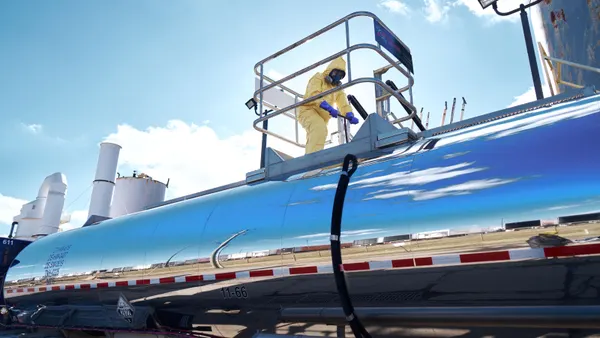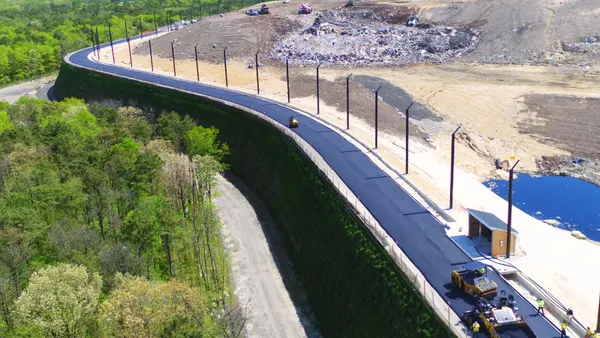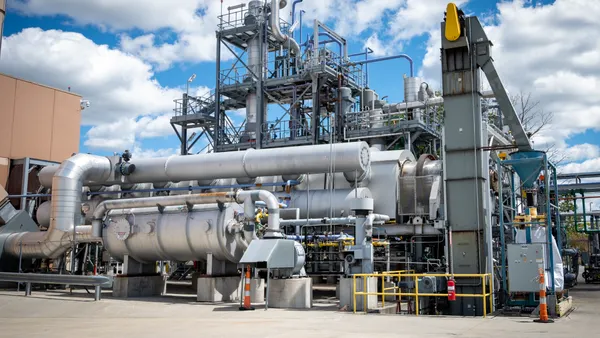Dive Brief:
- For the past few weeks, the Michigan House of Representatives has deliberated HB 5815, a bipartisan bill which would influence how the state spends $15 million each year on recycling marketing and infrastructure development.
- This budget kicked in during the 2018-2019 fiscal year as part of the so-called Renew Michigan Fund, which allocates $69 million annually for a range of waste-related activities like contaminated site remediation and landfill oversight.
- The Michigan Recycling Coalition has advocated for this bill to promote research and development into recycling and compost systems, as well as encourage counties to work with a range of related organizations. If municipalities need more infrastructure to meet these goals, legislation will also have to outline facility siting protocols to ensure good community relations, according to the organization.
Dive Insight:
HB 5815 is part of a larger package of bills overhauling how Michigan approaches waste, recycling and organic materials management. The first in the series, HB 5812, lays out a statewide 35% recycling rate target for 2025, while the five following bills lay out regulations and programs to help municipalities reach that goal. If implemented, the legislation could push the state beyond its current 15% recycling rate. Former Gov. Rick Snyder previously pledged to double that recycling rate during his tenure, but was unsuccessful.
Michigan last passed solid waste regulations back in 1997. At the time, residents and the state government were more concerned about ensuring there was enough space for all the trash, said Kerrin O’Brien, executive director of the Michigan Recycling Coalition. Those laws require counties to always have enough landfill space for five-and-a-half years’ worth of waste.
This protocol ensured that landfills always had ample space and artificially lowered disposal costs, O’Brien explained when testifying to the state legislature earlier this month. Legislation revolving around landfill capacity hinders recycling and composting efforts that have grown as people learn more about what can be reused, O’Brien told Waste Dive.
”In the past 30 years, we’ve really been investing in and improving our capacity to divert materials to productive use, but our solid waste laws don’t reflect that and encourage that," she said.
To refocus Michigan's waste management priorities, the bills would add new landfill oversight and help counties figure out what recycling and composting services they need. Those programs might come to fruition thanks to the $15 million directed each year toward recycling protocols and marketing, a surprise windfall from online sales tax revenue that offset a push to increase landfill tip fees at the time.
Market development efforts have more recently come from smaller scale federal programs or the private sector. But this area historically used to be a state-level focus and is starting to gain new attention following commodity market disruptions. California, Colorado, Texas and Washington are among multiple states to take new steps in this area recently.
Michigan is now in the second fiscal year doling out funds from its own increased recycling budget and O’Brien said she likes how that money has been spent so far. The pandemic disrupted some plans, but there is a data collection program in development and “really interesting and innovative market development programs waiting in the wings,” she said.
According to a report shared with Waste Dive by the state's Department of Environment, Great Lakes, and Energy, the agency spent 78% of its annual $15 million budget on grants for recycling infrastructure, quality improvements, market development and more during FY19.
Above all, O’Brien is anxious to see the bill guide county material management plans, another process the $15 million budget is intended to support, along with a separate $9 million allocation for industry oversight. That instruction will ensure local-level leaders convene with private companies to figure out what alternative materials management options are available and help direct the state's investments. Once those meetings happen, O'Brien said, “that’s when I think the fire is going to be lit."










